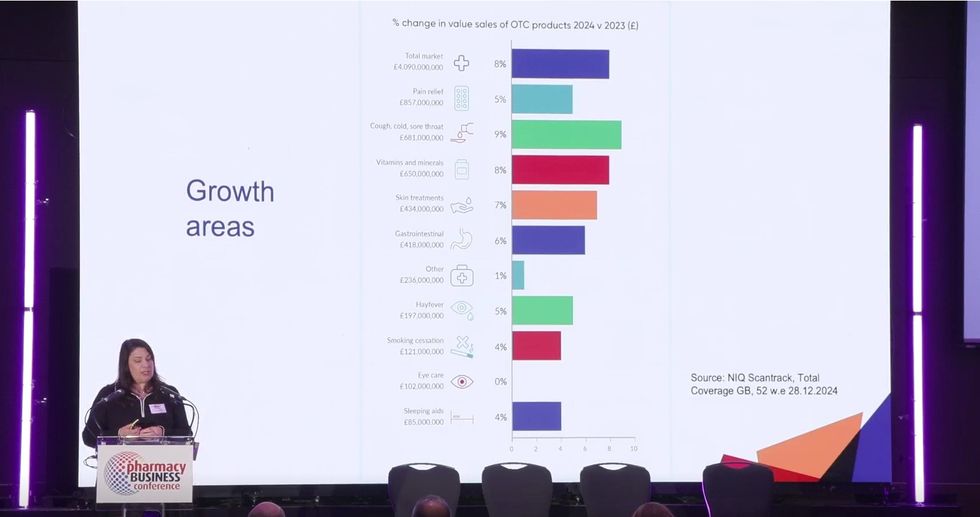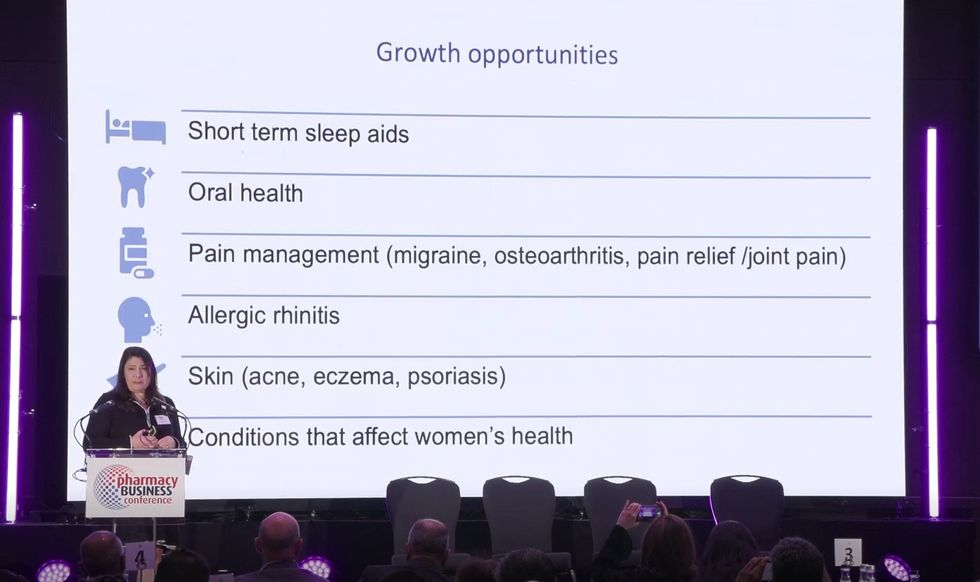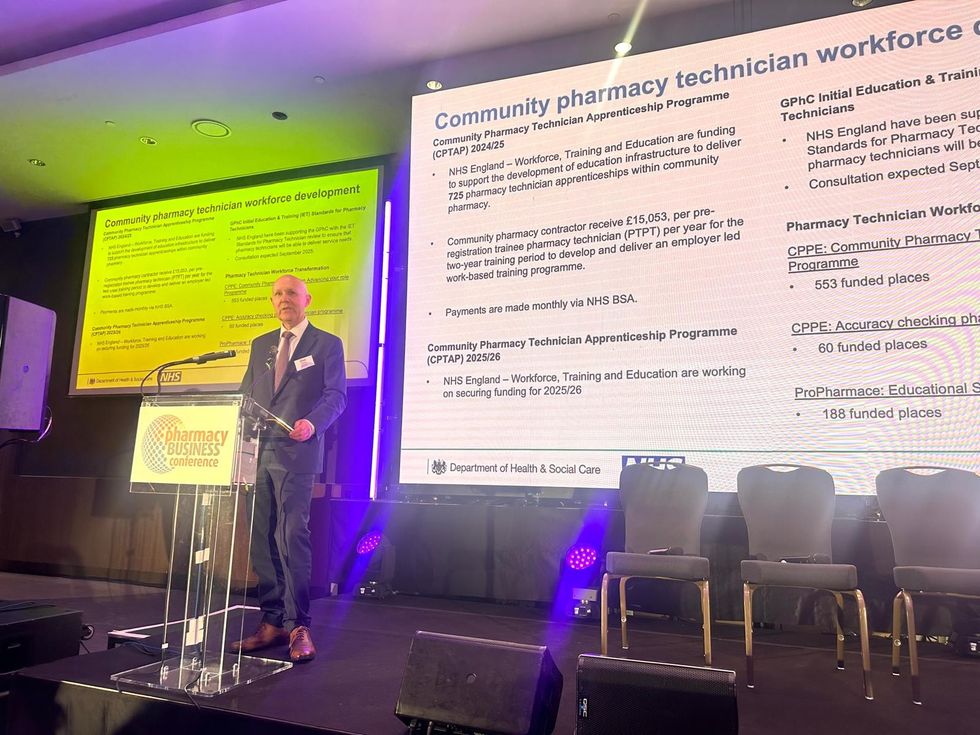In order to meet the challenges facing a post pandemic NHS, the digital transformation agenda needs to adapt and accelerate even faster, writes Chris Barker…
Throughout the past decade, digital transformation has been at the forefront of the agenda for the NHS which has been accelerated by the abundance of digitally enabled ways of working during the pandemic. While the last year has unquestionably heralded the spring shoots of transformation, there is so much to be done to build upon this and accelerate further.
For example, do both pharmacists and patients comprehend the value of digital to drive change at a fundamental level? The issue is not simply ensuring that the temporary fixes inspired by the pandemic successfully transition to standard practice, but also rapidly building on that foundation to enable the greatest value from digitisation within pharmacy.
Covid-19 has increased the need for digitally enabled and empowered ways of operating. From the backlog in outpatient appointments to postponed screening programmes and, crucially, the potential exodus of overworked and stressed pharmacists, the efficient, effective and intelligent care enabled by the right digital technologies is now critical.
Digital confidence
Wider digital confidence in both patients and pharmacists has supported many of the remarkable transformations in the way pharmacy processes have been delivered over the past year.
There is huge momentum-certainly at a national level – to use digital technologies to transform the way patient services are delivered; to build on the adoption of telemedicine and federated service delivery – for example with Covid vaccination clinics – to drive further change. But this is not new. From the Long Term Plan to the establishment of Integrated Care Systems (ICS), the use of digital technologies to provide joined up, patient centric care across both health and community services is securely embedded on the NHS agenda.
The challenges presented by Covid -19 enabled organisations to bypass some of the legacy constraints related to delivering IT projects across the NHS. Yet the success of many of the temporary solutions, albeit digitally enabled, were as much down to the incredible drive and resilience of individuals as any technology. Progress has been made – but in truth, the changes made in digital transformation within the NHS to date is only the beginning of the journey.
Encouraging digital change
As the NHS presses on with digital plans, which are vital to support the short-term restoration and recovery of critical services post-pandemic, it is important to learn from the past year, reinforce new digital confidence and prevent losing the innovations that have been achieved. This is about protecting the NHS against slipping back into past behaviours that undermine the power of digital technologies to positively transform pharmacy operations. It is about addressing health inequalities, governance and workforce issues; and, fundamentally, it is about integration, whole system thinking, clinical practice and innovation.
This will call for significant, consistent change. It will require not only an investment in digital technologies but also a dedication to assist staff at every level with digital skills, with the knowledge and ability to intuitively leverage systems and tools to support new ways of delivering care.
The message must also be correctly framed. We know that remote care services, when supported with instant access to shared care records, are extremely effective – anecdotal evidence suggests that an individual can effectively manage twice as many patients as in a traditional face to face model. But, in a clinical resource depleted NHS, digital technologies must be about so much more than efficiency.
It is now important to show pharmacists what true digital transformation can enable-and that requires a shift away from reactive to proactive healthcare provision.
Remote care
The NHS care model has, by default, been reactive. Digital technology can totally change this approach by reducing the risk to patients and providing both patients and pharmacists with tools that allow more proactive, personalised care.
Healthcare economies are using digital technologies at a local and even a regional level, to increase services through collaboration between primary, community, pharmacy and acute organisations. This offers both physical and virtual joined-up support to help patients better manage their health, and enable real-time, proactive intervention to prevent patient deterioration and exacerbations.
Online pharmacies, for example, are becoming increasingly effective in providing specialist services to help patients control and become educated about their condition, in addition to dispensing prescribed medication. Especially during the Covid-19 pandemic, digitally prescribing medicines has allowed vulnerable patients to stay safe at home.
Unlike a busy high-street pharmacy, an online pharmacy has more scope to offer enhanced services to patients that can be laser-focused on certain conditions. While they dispense medications and can offer advice on all conditions, they do have the flexibility to hone in on certain specialisms due to their virtual nature.
Adding education and advice around disease management, combined with health population analytics enabled by new, exciting technologies such as AI and machine learning, can change the way in which patients think about their overall health. In turn, this helps improve care pathways for specific diseases - providing huge value to all.
Meeting demands
This is not a ten-year digital vision. This is an immediate need and something that a digitally driven NHS should be driving towards now. The technology is available and proven – the barriers are, in the main, culture and perception. Which is why, despite everything changing, nothing has changed – yet. The NHS needs to continue to push forward with education to build confidence in digital technologies and, critically, to sell the benefits.
This is a significant change in working practice – but it is a change that will deliver huge benefits for pharmacists, both in terms of working practices and the patient outcomes. The right digital technologies, in alignment with proactive care and the ability to deliver care through multiple pathways, will remove the tedious burden from clinicians by releasing talented, experienced individuals to maximise their skills with patient centric care.
It will help them to reach more patients, not just by replacing face to face with remote care but through intelligent, information driven care, where patients and pharmacists are empowered by information collected continuously through monitoring tools.
If the NHS gets this next stage of digital transformation correct, it will open the way for more innovation; for new, better ways of keeping patients out of hospital. Digital technologies have the power to change lives - it is the way that aspect of the digital model is presented and deployed to all involved that will be the basis for a health service suitable for the requirements of the 21st century.
Chris Barker is CEO at Spirit Health Group.








 Patricia Tigenoah-Ojo
Patricia Tigenoah-Ojo Baba Akomolafe,
Baba Akomolafe,  Rachna Chhatralia
Rachna Chhatralia Raj Matharu
Raj Matharu


![Potential Side Effects of Mounjaro [What You Need to Know]](https://www.pharmacy.biz/media-library/image.jpg?id=54516976&width=400&height=224&quality=90&coordinates=0%2C29%2C0%2C29)



 NielsenIQ data shows a positive trend in OTC sales
NielsenIQ data shows a positive trend in OTC sales  Six broad health conditions where medicines can be reclassified are shown on the screen.
Six broad health conditions where medicines can be reclassified are shown on the screen. 


 Health Secretary Wes Streeting addresses Pharmacy Conference via video
Health Secretary Wes Streeting addresses Pharmacy Conference via video  David Webb, chief pharmaceutical officer of NHS England
David Webb, chief pharmaceutical officer of NHS England Shailesh Solanki, executive editor of Pharmacy Business
Shailesh Solanki, executive editor of Pharmacy Business L-R: Yasmin Karsan, Pritee Panchmatia and Fin McCaul
L-R: Yasmin Karsan, Pritee Panchmatia and Fin McCaul  L-R: Baba Akomolafe, Rachna Chhatralia, Patricia Tigenoah-Ojo and Raj Matharu
L-R: Baba Akomolafe, Rachna Chhatralia, Patricia Tigenoah-Ojo and Raj Matharu L- R: Nicola Stockmann, Robert Townsend, Atul Patel and Amerjit Singh
L- R: Nicola Stockmann, Robert Townsend, Atul Patel and Amerjit Singh Wole Ososami, lead pharmacist at Westbury Chemist
Wole Ososami, lead pharmacist at Westbury Chemist